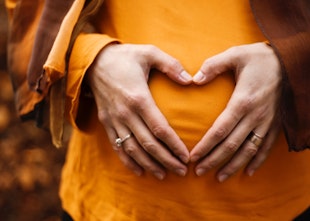Endometriosis is an uncomfortable disorder that involves tissue (the endometrium) growing outside of your uterus when it should typically grow inside your uterus. The tissue that should line the inside of your uterus can affect your ovaries and fallopian tubes and often causes a lot of pain.
Endometriosis is an uncomfortable disorder that involves tissue (the endometrium) growing outside of your uterus when it should typically grow inside your uterus.
The tissue that should line the inside of your uterus can affect your ovaries and fallopian tubes and often causes a lot of pain.
With each menstrual cycle, the lining of your uterus sheds in the form of your monthly
period. This lining will have built up over time and thickened before coming away as blood. When a woman has endometriosis, the lining continues to do this despite being placed outside of the Uterus. This means that the tissue has nowhere to shed (it would typically shed from your uterus through the cervix) and builds up. This can lead to cysts, adhesions and painful scar tissue.
The first symptom of endometriosis is usually pain. The pain may persist throughout your entire cycle or may flare up during your monthly period. The pain is often noted to be in the pelvic area but cramping can occur in the lower back, tummy and hip area also.
When endometriosis is present, everyday activities such as bowel movements can be really uncomfortable. Many women notice that this is particularly bad during their monthly period. Sexual intercourse may also be painful and bleeding at random times during the month may be frequent.
There are many similarities between endometriosis and other conditions such as Irritable Bowel Syndrome (IBS). Cramping, diarrhoea and constipation can all occur and make it difficult to diagnose the condition.
There are many reasons why endometriosis may happen for a woman. In some cases, doctors believe that when a woman has her monthly period some of the blood and tissue travels out through the fallopian tubes and into the abdominal cavity.
Other doctors notice the spread of endometriosis at a time of surgery, such as directly after a
C-section. This may suggest that the cells from the lining of the uterus travel through the lymphatic system in the body to reach other organs. Other theories suggest that a woman’s immune system and genes may influence endometriosis.
The disorder is usually diagnosed with laparoscopy which is a surgery whereby the doctor observes the abdomen through a small camera that is fed through the belly button.
Endometriosis can cause problems with
fertility. The inflammation can affect the way the ovaries and uterus function. It may also affect the fallopian tubes’ ability to pick up an egg after ovulation has occurred. Surgery can help to burn endometriosis lesions which can eliminate pain but also aids in fertility. With the help of medication, the chance of conceiving while suffering from endometriosis is very high. In fact, pregnancy actually improves endometriosis for many women. Breastfeeding has also been known to slow down the rate at which endometriosis grows.
Your fertility plan is likely to place a great deal of attention on your food and lifestyle choices too. Studies have shown that a diet rich in red meat and low in fruit and vegetables may increase the risk of endometriosis. Fish oils and antioxidants may be recommended as well as decreasing your consumption of alcohol, caffeine and sugar.
A healthy diet and regular exercise will help you maintain a healthy weight which is known to help with endometriosis. When your body is at a healthy weight it can manage the symptoms of endometriosis much better.
Written by Tracey Quinn staff writer at FFHQ who also blogs at www.loveofliving.ie.







